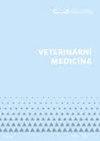微波辐射对悬浮在 水中的 类芽孢杆菌幼虫孢子的抑制作用
IF 0.6
4区 农林科学
Q3 VETERINARY SCIENCES
引用次数: 0
摘要
本文研究了微波辐照对芽孢杆菌芽孢孢子活力的影响,并研究了微波辐照功率、微波辐照时间与芽孢孢子数量之间的关系。无菌蒸馏水悬浮液由幼虫碎屑制成,含有数十,数百和数千个孢子。将所有稀释后的悬浮液逐渐暴露在170、510和850 W的微波辐射功率下。所有病例的暴露时间分别为1、2、3、4、5、10、15、20、25和30分钟。冷却后,将每份暴露的悬浮液0.1 ml接种于3块改良的MYP(甘露醇蛋黄多粘菌素)琼脂板上,在37±1℃好氧孵育120小时。使用unstat statistical Package v6.5使用非参数Friedman’s方差检验对随时间减少的孢子计数进行统计评估。结果表明,孢子的失活率与微波炉的功率消耗有关,但与孢子的数量无关。使用170、510和850瓦的功率消耗,孢子分别在暴露15、3和2分钟后失活。本文章由计算机程序翻译,如有差异,请以英文原文为准。
The inhibiting effect of microwave radiation on Paenibacillus larvae spores suspended in water
The aim of this paper was to investigate the effects of microwave radiation on the viability of Paenibacillus larvae spores and to study the relationship between the microwave power consumption, the exposure time and the number of spores in the examined suspensions. Sterile distilled water suspensions were made using larval detritus, to contain tens, hundreds and thousands of spores. The suspensions of all the dilutions were gradually exposed to a microwave radiation power of 170, 510 and 850 W. In all the cases, the exposure time was 1, 2, 3, 4, 5, 10, 15, 20, 25 and 30 minutes. After cooling, 0.1 ml of each exposed suspension was inoculated onto three modified MYP (mannitol egg yolk polymyxin) agar plates and incubated aerobically at 37 ± 1 °C for 120 hours. The statistical evaluation of the spore counts decreasing with time was performed with the use of the nonparametric Friedman’s variance test using the Unistat Statistical Package v6.5. The results showed that the rate of devitalisation of the spores is dependent on the microwave oven power consumption, but independent of the number of spores. Using a power consumption of 170, 510 and 850 W, the devitalisation of the spores occurred after 15, 3 and 2 min of exposure, respectively.
求助全文
通过发布文献求助,成功后即可免费获取论文全文。
去求助
来源期刊

Veterinarni Medicina
Veterinary Sciences-兽医学
CiteScore
1.30
自引率
0.00%
发文量
62
审稿时长
18-36 weeks
期刊介绍:
The journal Veterinarni Medicina publishes in English original papers, short communications, critical reviews and case reports from all fields of veterinary and biomedical sciences.
 求助内容:
求助内容: 应助结果提醒方式:
应助结果提醒方式:


